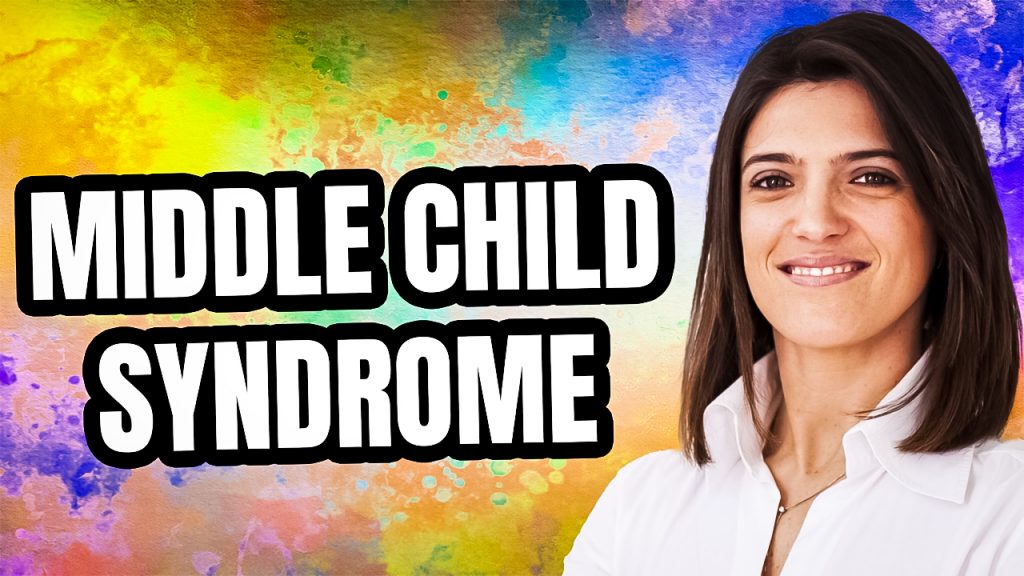What is Middle Child Syndrome?

Middle Child Syndrome refers to the idea that middle children, who grow up with siblings both
older and younger than themselves, can experience feelings of isolation, neglect, and frustration
as they strive to establish their own identity and find their place within the family. While it is not
an official medical or psychological diagnosis, the concept of Middle Child Syndrome has been
widely discussed in popular culture and studied by researchers, who have identified certain
patterns and characteristics that may be associated with this phenomenon.
The concept of Middle Child Syndrome can be traced back to the 1960s, when Alfred Adler, an
Austrian psychologist and contemporary of Sigmund Freud, first described what he called the
“second child syndrome.” Adler theorized that second-born children, who are sandwiched
between an older sibling who holds the family’s attention and a younger sibling who is more
vulnerable and dependent, may experience feelings of inferiority, jealousy, and inadequacy.
Over time, this idea expanded to include all middle children, who may struggle to define
themselves and feel like they are constantly overlooked or overshadowed by their siblings.
Research has shown that there may be some validity to the idea of Middle Child Syndrome,
although it is important to note that not all middle children will experience these feelings and not
all siblings will fall neatly into the stereotypical roles of oldest, middle, and youngest.
Nevertheless, studies have found that middle children may be more likely to exhibit certain
traits, such as independence, creativity, and adaptability, that could be linked to their position in
the family.
One possible explanation for these traits is that middle children often have to navigate complex
family dynamics and learn to negotiate and compromise with both older and younger siblings.
This can foster a sense of flexibility and resourcefulness that may serve them well in other areas
of their lives. Middle children may also be more likely to seek out social connections and forge
their own path, as they may not feel as tethered to their family identity as oldest and youngest
siblings.
However, these positive traits can also come with some negative consequences. Middle
children may feel like they are constantly overlooked or undervalued, as their achievements and
milestones may not receive the same level of attention as their siblings’. They may also struggle
with a sense of identity, as they try to distinguish themselves from their siblings and establish
their own place in the family and the world. This can lead to feelings of insecurity, anxiety, and
even depression, as middle children may feel like they are constantly living in the shadow of
their siblings.
One study published in the Journal of Individual Psychology found that middle children may be
more likely to struggle with self-esteem issues and feel like they are not living up to their full
potential. This may be due in part to the fact that middle children often have to compete for
attention and resources within the family, and may feel like they are always playing catch-up to
their older siblings. Additionally, middle children may feel like they have to “choose sides”
between their older and younger siblings, which can create a sense of conflict and loyalty that
may be difficult to navigate.
Despite these challenges, many middle children go on to lead successful and fulfilling lives. By
embracing their unique position in the family and leveraging their strengths and talents, middle
children can overcome the negative aspects of Middle Child Syndrome and forge their own path
in the world. This may involve seeking out supportive social networks, pursuing creative outlets,
and developing a strong sense of self that is not defined solely by their family position.
In conclusion, Middle Child Syndrome is a complex and multifaceted phenomenon that has
been the subject of much research and discussion. While not all middle children will experience
feelings of isolation, neglect, or frustration, it is important to recognize the potential challenges
that may arise from this position in the family. By understanding the dynamics at play and
fostering a supportive and nurturing environment, parents and siblings can help middle children
overcome these challenges and thrive in their own unique way. Middle children can also take
steps to cultivate their own identity and sense of purpose, such as pursuing hobbies, interests,
and friendships outside of the family, and working on building their self-esteem and confidence.
It is worth noting that the concept of Middle Child Syndrome has been criticized by some
experts, who argue that it is an oversimplification of complex family dynamics and that there is
no definitive evidence to support the idea that middle children are inherently disadvantaged.
While it is true that not all middle children will experience negative outcomes, it is also important
to acknowledge that the experience of growing up as a middle child can be challenging and
unique in its own way.
This Post is Brought To You By BetterHelp